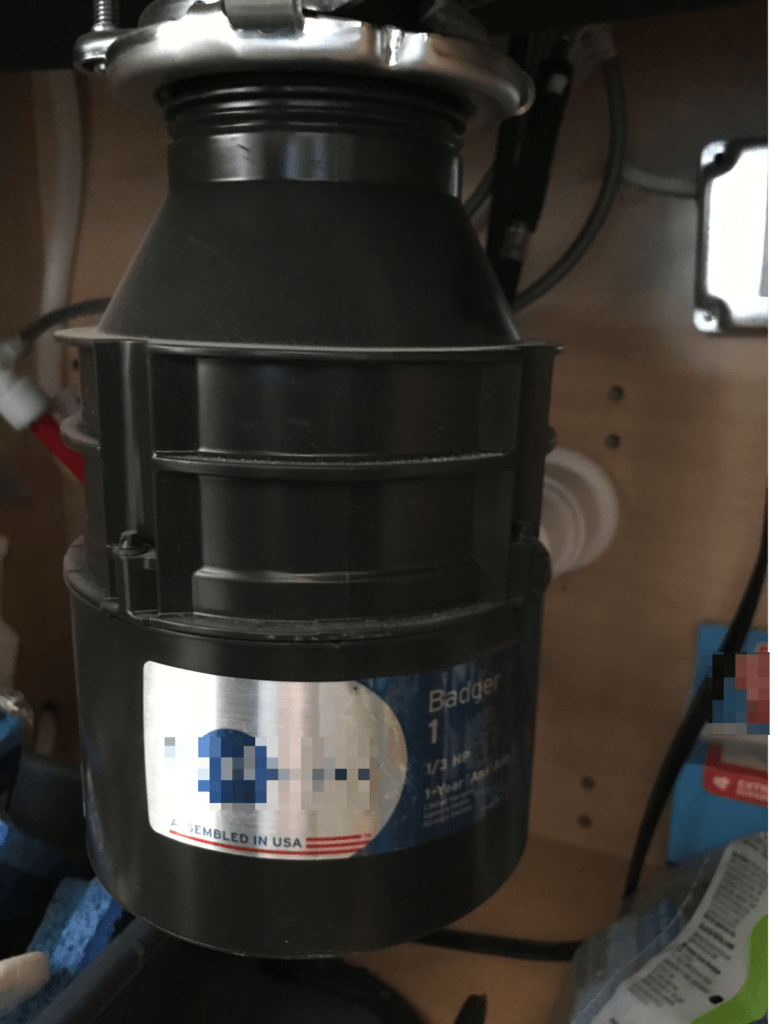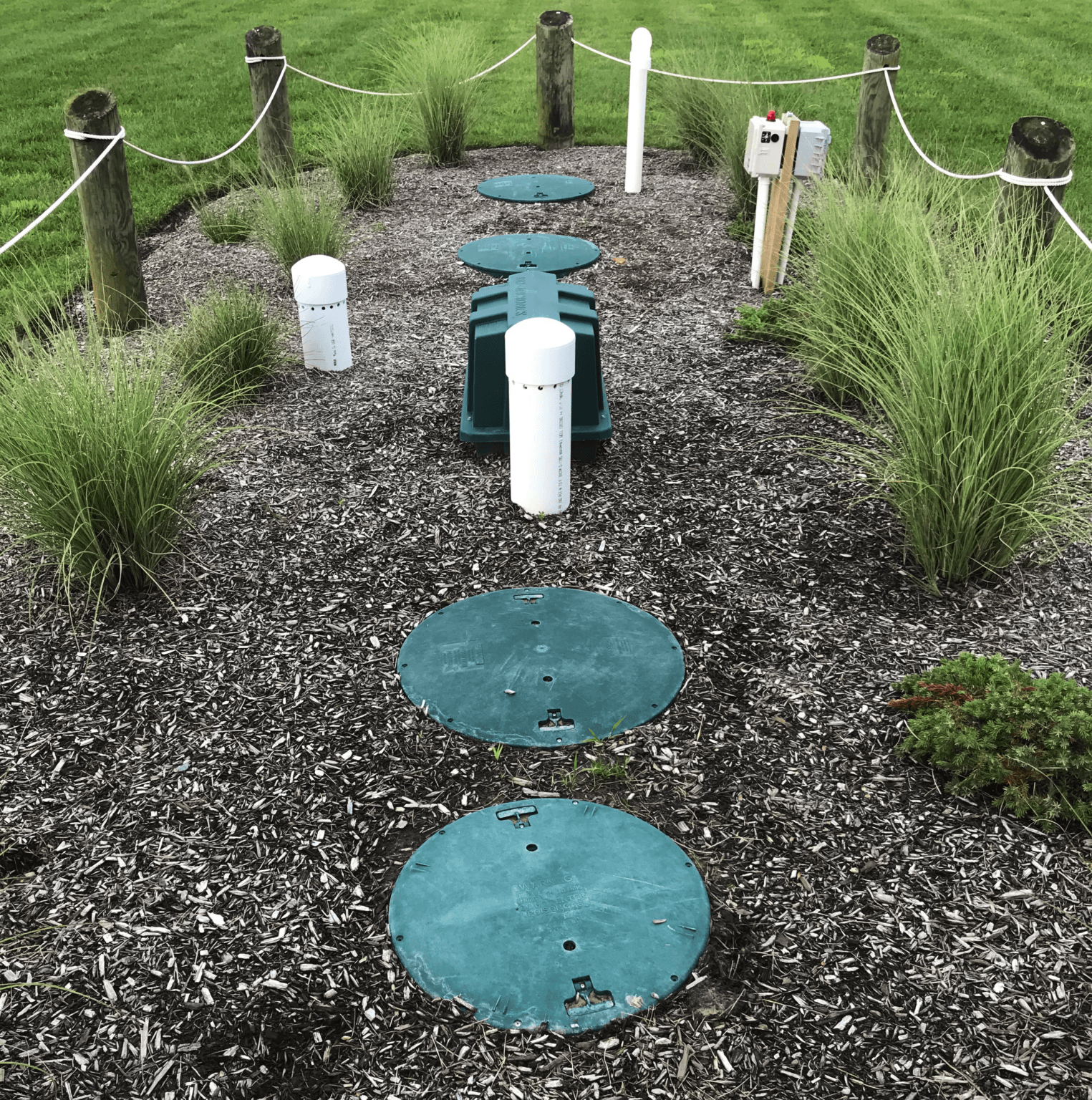If you are like us and never had a septic system before you may be wondering, should I use a garbage disposal if I have a septic system?
We have owned a condominium and a house before, but our new home in Lewes, Delaware, is significantly different. We have our own well and septic system. As exciting as I was about owning a private well, I have mixed feelings about the septic system.
We have already had the septic alarm gone off a couple of times, and I want to learn all I can about it to maintain it functioning well as long as possible. We have a garbage disposal, but we didn’t receive a manual to know how to use it and what precautions to take, considering that we have a septic system.
If your house has a septic system, you will be better off not using your garbage disposal. Frequently using a garbage disposal taxes the system by adding more solid waste to the septic tank. As a result, you may have to pump your tank more often, pay for additional repairs, and replace your septic system sooner than expected.
I have researched the topic and talked to a couple of neighbors about it, and this is what I have learned.
Basics of Septic Systems and Garbage Disposals
Let’s go over the fundamentals of septic systems and garbage disposals before we answer our main question of whether I should use a garbage disposal if I have a septic system.
Main Function of Septic Systems
The primary function of septic system is to separate matter that floats, such as oils and grease (scum) and solids that sink (sludge) from the wastewater coming from your home.
Only liquid known as effluent should be discharged from the septic tank into the drain fields.
Helpful bacteria grow naturally in your septic tank and help decompose some of the solids at the bottom. Bacteria alone can’t disintegrate all the solids, and this is why your septic tank must be pumped periodically (typically every 3 to 5 years.)

Main Function of Garbage Disposals

Garbage disposals are mounted underneath a sink and have the purpose of collecting and grinding solid food waste into small bits.
According to Wikipedia, the rationale for garbage disposals has to do with public health and the environment. Food scraps are a significant component of municipal waste (10% to 20%), contributing to creating public health, sanitation, and environmental problems.
Using the garbage disposal also reduces leftover food that may contain harmful bacteria for homeowners.
Some other experts, however, note that garbage disposals require excess water usage, which is also an environmental issue.
Why Garbage Disposals and Septic Systems are Not a Good Match

Many homeowners with septic systems have heard or read about the many things that shouldn’t go into their septic tank. It’s not then surprising that they worry about using garbage disposals with their systems.
As we mentioned above, the main purpose of a garbage disposal is to reduce solids, but not eliminate them. When you are part of the city sewage system, the waste that goes through your garbage disposal becomes the city’s problem. When you have a septic system, that waste goes down the drain into your septic tank.
In the USA garbage disposals are often included in kitchens regardless of whether you are part of the city sewer or own a septic system. Builders and contractors don’t usually tell you that garbage disposals are not the best choice for septic systems.
And if you are like us, coming from a house connected to a city sewer, you may use it the same as you did before. But that is not a good idea.
Even if you use your garbage disposal as intended, you will add more solids, fats, grease, and oils to your septic tank. The more sludge there is at the bottom of your septic tank, and scum on top, the less capacity there is in the tank, and the less efficient it becomes.
The naturally grown bacteria will slowly break down some sludge components, but it can easily be overwhelmed as it doesn’t have enough time to treat everything.
In addition, putting certain products through the garbage disposal may make your kitchen sink smell like rotten eggs.
You may be also interested to know that garbage disposals are banned in many Canadian cities.
Consequences of Using Your Garbage Disposal
If you regularly use the garbage disposal, you will seriously increase the amount of solid waste that goes into your septic tank.
This is why most states in the USA require that a garbage disposal be considered equivalent to an additional room when determining the septic tank side. That is the case of New York, as an example. The state of Georgia goes even further, requiring that a “septic tank capacity be increased by (50%) if a garbage grinder is to be used.”
Frequently using your garbage disposal will affect how often your system is inspected and pumped. It will also influence the number of repairs you have and the septic system lifespan.
Increased Number of Inspections
Your septic tank will likely have to be inspected more often. How often depends on how much you are taxing the system.
Why is this important?
According to Thumbtack, the average cost to inspect a septic system is $340. If you have to do this often, it can add up.
Increase Pumping Frequency
Pumping, usually done by a professional company, is the process used to remove sludge from the septic tank’s bottom.
All septic tanks need to be pumped frequently. According to the EPA, household septic tanks are typically pumped every three to five years. This is just a rule of thumb and may be different for your situation.
Consider two identical houses with the same number of family members and septic tank size. One house frequently uses the garbage disposal and the other one doesn’t. The house that uses the garbage disposal will need to pump the septic tank more often.
Why is this important? This is another expense.
According to Home Advisor, most homes with 1,500 to 3,000 square feet pay between $250 to $600 to pump a septic tank. That averages to about $398.
More Repairs
When you tax your septic system more than usual, there are bound to be more repairs. And here is where money starts to add up.
According to Home Advisor, the average national repair is $1,557. However, major repairs can run $5,000 or more.
Shorter Septic System Lifespan
Septic systems don’t last forever. Even when you take very well care of them, eventually, they need to be replaced. The lifespan of a septic system varies widely — from 15 to 40 years.
Many factors determine how long your system will last. Some factors may be out of your control:
- What material your septic tank is made of: concrete, steel, fiber-reinforced plastic, fiberglass, etc
- Type of soil
- Faulty installation
But some other factors are clearly within your control:
- Septic tank pumping frequency
- Wastewater usage level
- What materials are flushed down the septic system drains
All these factors together determine the lifespan of your septic system. Clearly, using your garbage disposal will not help.
Why is this important?
According to Home Advisor the national average cost of replacing a septic system is $6,221 with a $3,115 – $9,614 range.
What About Garbage Disposals Designed for Septic Systems?
Some manufacturers carry garbage disposals designed explicitly for septic systems.
These devices typically include a piece that sprays liquid with “enzymes” every time you use your garbage disposal. Based on my research, there is no evidence that any septic system additive is beneficial.
I have not been able to find any proof from manufacturers showing that adding these enzymes will reduce the frequency of tank pumping, servicing, or repairs.
It may actually be counterproductive if these devices make homeowners confident that they can put anything through their garbage disposal.
You may want to check why most kitchens have the sink facing a window.
Please let me know in the comments below if you have a different opinion.
Closing Thoughts
No one is telling you to be afraid of your garbage disposal. You can use it to rinse dishes and put through light leftovers within reason. But frequently using it without giving it much thought may prove to be costly in the long run.
Related Posts:




